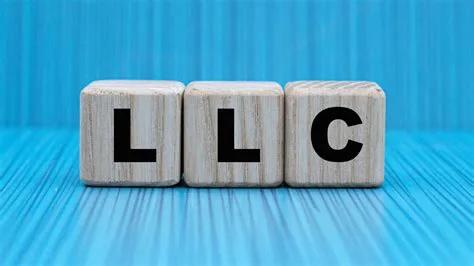Every investor faces this question at some point: should you buy your investment properties in your personal name or under an LLC? The answer isn’t one-size-fits-all. It depends on your goals, how far along you are in your investing journey, and the type of properties you’re buying.
Let’s break down what you should know about both options and how to decide which structure might work best for you.
Buying Real Estate in Your Personal Name
Most investors begin with small residential properties. Anything from one to four units is considered residential, even if it’s for an investment, and you can take advantage of traditional financing options like Fannie Mae or Freddie Mac loans when buying residential property in your personal name.
These loans are attractive because they’re familiar and accessible. They usually offer thirty-year amortization, competitive interest rates, and a straightforward application process. For new investors, this makes it easier to build momentum quickly and start accumulating assets.
However, there is a limit to this strategy. You can only hold up to ten of these loans in your personal name. If you already own a primary residence that was financed, that leaves room for nine additional investment properties before you reach the cap. After that, you’ll need to look for alternative options.
The personal name approach works well for beginners, but you’ll likely outgrow the limitations as your portfolio grows. Once you reach that point, you’ll need to consider how to transition your holdings into a structure that allows for continued expansion.
Moving Your Investments to an LLC
An LLC, or Limited Liability Company, opens up more flexibility – especially for investors who plan to grow beyond a few residential properties.
When you purchase through an LLC, you enter the world of commercial lending. Instead of the standardized loans used for single-family homes, you’ll be looking at portfolio loans and other investment-focused products. These loans are often issued by banks that evaluate your portfolio as a whole, pooling properties together to determine how much they’ll lend based on the combined collateral and equity.
Another option that’s becoming more common is a DSCR loan, short for debt service coverage ratio. These loans are designed specifically for investment properties. Lenders look at the property’s income and expenses to determine if it produces enough cash flow to cover debt payments. The property’s performance – not your personal income – is what qualifies you.
One key detail to note: most DSCR lenders require that the property be held in an LLC before they’ll issue a loan. Even if you’re buying a single-family rental property, you’ll need to establish that business entity first.
So, while LLCs may sound like a formal structure reserved for large investors, they can actually make sense much earlier if you’d benefit from using this kind of financing.
Considering Liability and Insurance
Financing isn’t the only reason investors form LLCs. Liability protection is another major factor.
When you hold properties in your personal name, your personal assets can be at risk if something goes wrong. That’s why many insurance providers recommend an umbrella policy as a first line of defense. It adds a layer of coverage that protects you beyond the limits of your standard property insurance.
However, as you grow, insurance alone may not be enough. Once you start owning commercial investment properties – categorized as five units or more – it often makes sense to establish an LLC. Doing so separates your business assets from your personal assets. If a tenant or contractor were to file a lawsuit, your personal property, savings, and income would be better shielded from that risk.
That said, many experienced investors use both strategies together. They hold property in an LLC and maintain a strong umbrella policy to ensure full protection. This combination offers peace of mind and keeps your business organized as it scales.
Choosing What Works for You
So, should you buy investment property in your name or an LLC? Ultimately, there’s no universal rule. The right choice depends on your goals and comfort level with risk, as well as the size and type of your portfolio.
If you’re just getting started with small residential investments, buying in your personal name can be a practical way to secure favorable loan terms and build equity. But as your holdings grow, so does your exposure. That’s when the benefits of an LLC – liability protection, easier portfolio management, and access to commercial financing – become more valuable.
Some investors choose to start small in their personal name and later transfer properties into an LLC. Others set up an LLC right away to build their portfolio under one entity. The best approach is tailored to your strategy and journey, based on the guidance of your expert team.
Final Thoughts
Deciding whether you should buy an investment property in your personal name or under an LLC is less about what’s right for everyone and more about what’s right for you. Personal name ownership offers simplicity and better access to conventional loans, while LLCs provide flexibility, protection, and more room for growth. Both approaches can work, depending on your stage as an investor. The key is understanding the trade-offs and planning for what comes next.
Many investors we work with appreciate our guidance throughout their journey from early residential deals to larger, more structured investments. If you’re considering starting or expanding your portfolio in Pennsylvania or Maryland, contact us to discuss your goals and explore the strategies that can help you move forward with confidence.





